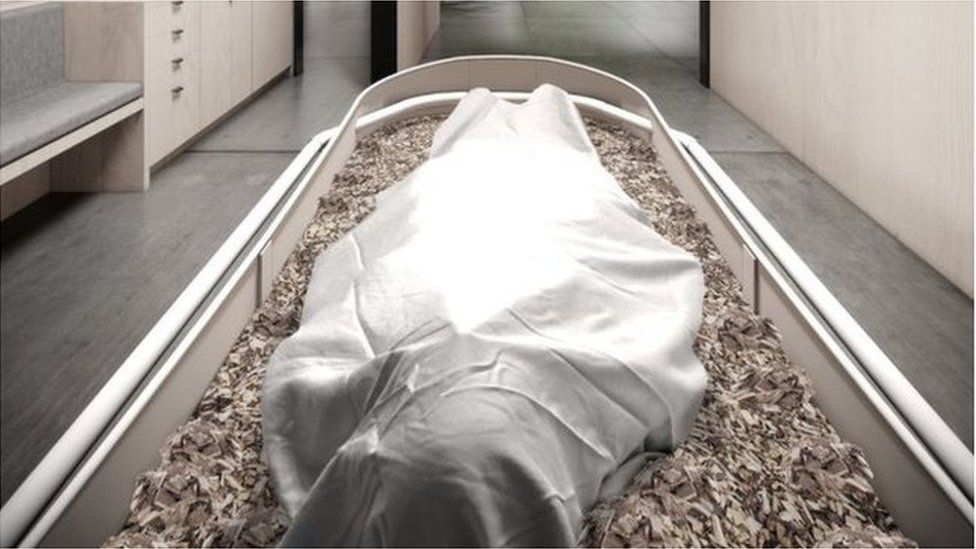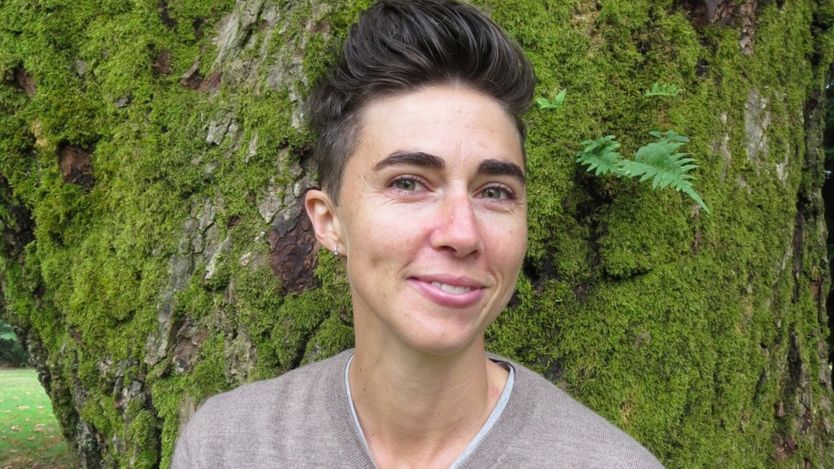Human compost funerals
'better for environment'
 The process takes 30 days and relatives can
The process takes 30 days and relatives can then scatter the remains on plants or under a tree
A US firm has given scientific details of its "human composting" process for environmentally friendly funerals.
A pilot study on deceased volunteers showed that soft tissue broke down safely and completely within 30 days.
The firm, Recompose, claims that its process saves more than a tonne of carbon, compared to cremation or traditional burial.
It says that it will offer the world's first human composting service in Washington state from next February.
Speaking exclusively to BBC News, Recompose's chief executive and founder, Katrina Spade, said that concerns about climate change had been a big factor in so many people expressing interest in the service.
"So far 15,000 people have signed up to our newsletter. And the legislation to allow this in the state received bi-partisan support enabling it to pass the first time it was tabled," she said.
"The project has moved forward so quickly because of the urgency of climate change and the awareness we have to put it right."
 RECOMPOSE
RECOMPOSE
Ms Spade spoke to me as results of the scientific study into the composting process, which Recompose calls natural organic reduction, was being presented at the American Association for the Advancement of Science meeting in Seattle.
"There is a loving practicability to it," she said, in one of the few interviews she has given since announcing details of the project a year ago.
She told me that she came up with the idea 13 years ago when she began to ponder her own mortality - at the ripe old age of 30!
"When I die, this planet, which has protected and supported me my whole life, shouldn't I give back what I have left?
"It is just logical and also beautiful."
Ms Spade draws a distinction between decomposing and recomposing. The former is what happens when a body is above ground. Recomposing involves integrating it with the soil.
She claims that natural organic reduction of a body prevents 1.4 tonnes of carbon being released into the atmosphere, compared with cremation. And she believes there is a similar saving compared to traditional burial when transportation and the construction of the casket is taken into account.
